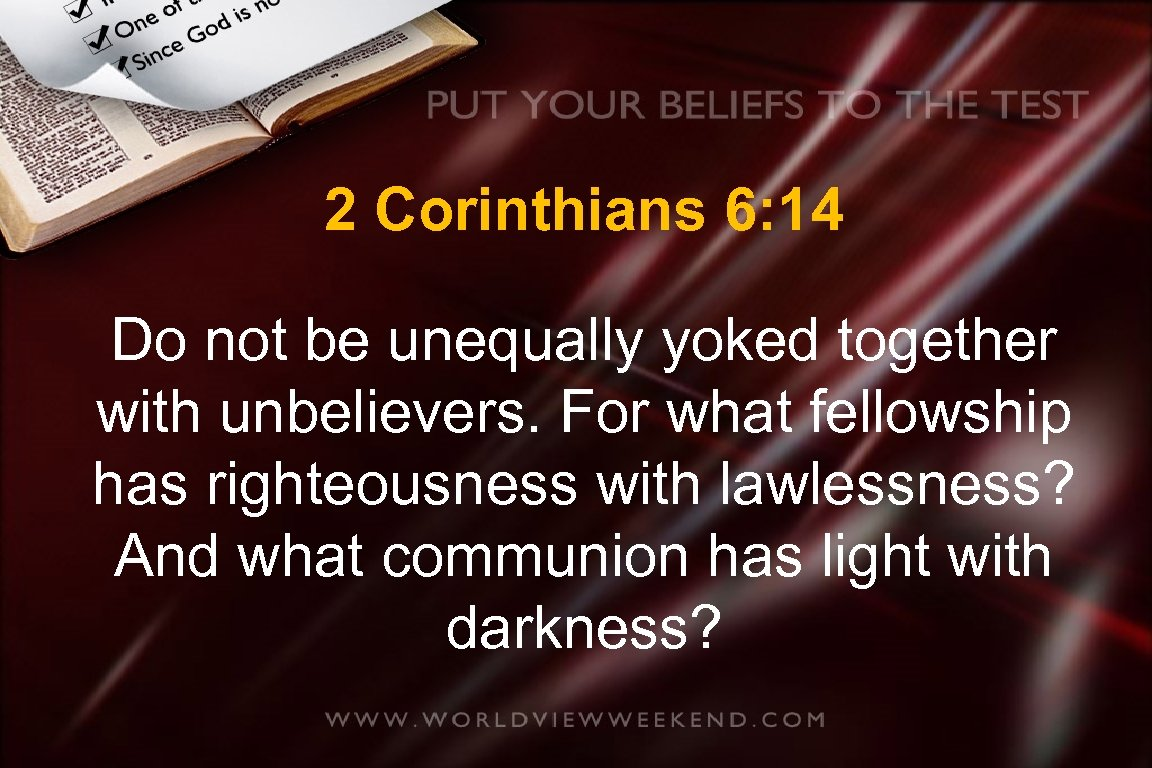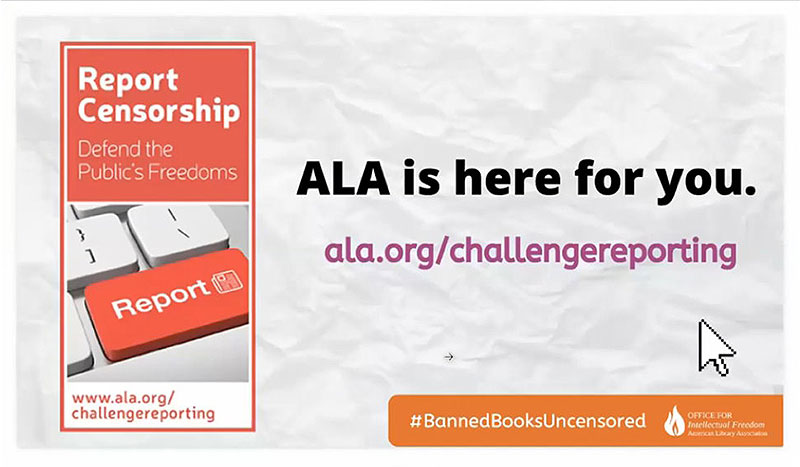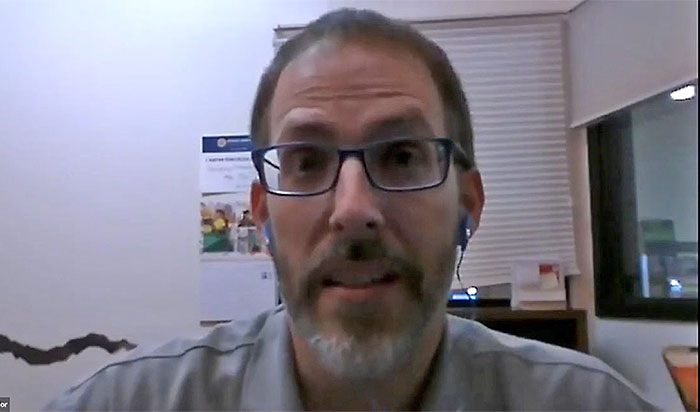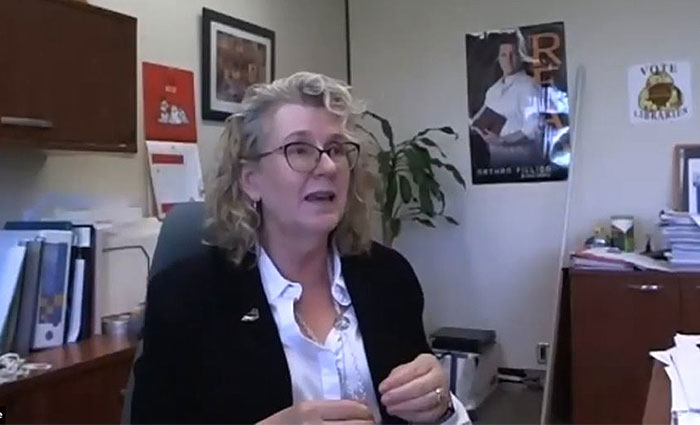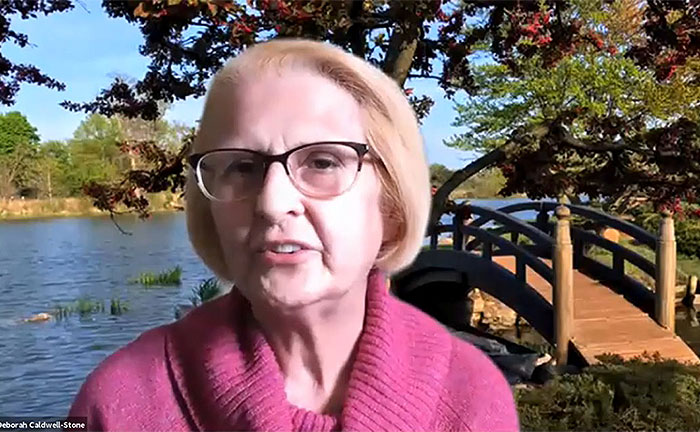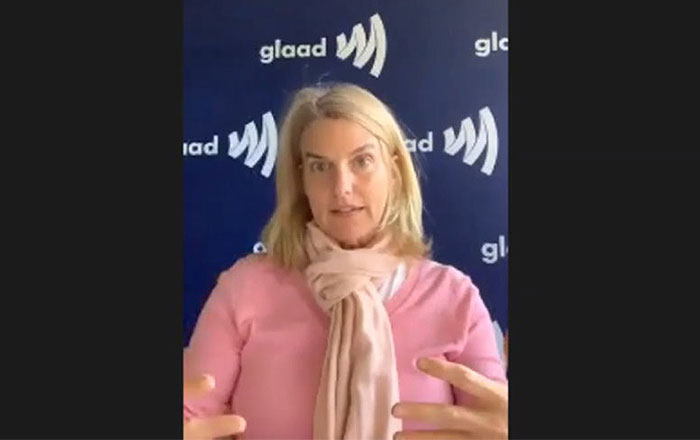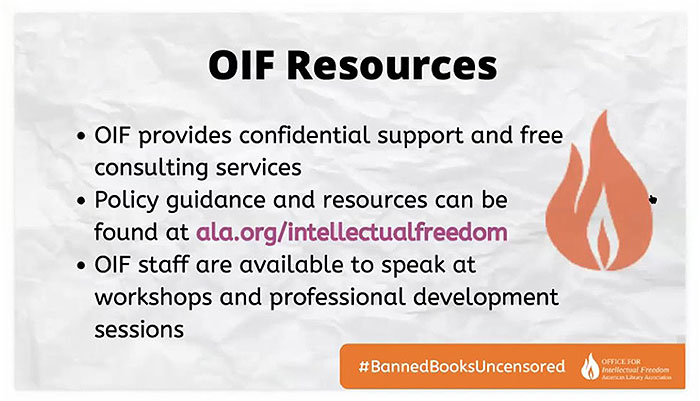Republished below in full unedited for informational, educational, & research purposes.
Within the theological structure of the cults there is considerable truth, all of which, it might be added, is drawn from biblical sources, but so diluted with human error as to be more deadly than complete falsehood.” ― Walter Martin, Kingdom of the Cults
Recently, I sent you all an email with a brief list of quotes of Thomas Oord, highlighting some of his heretical beliefs.
In spite of this evidence in his own words, the Intermountain District failed to remove his credentials as an ordained elder in the Church of the Nazarene.
I believe this speaks volumes even more about the General Superintendents and the leaders of the denomination, and their abdication of a duty to defend the faith.
Below is the complete document written by Oord in his defense. I have highlighted in red what I believe are some of the most egregious comments.
There will be more shocking news later on, because Mr. Oord is one of the people who is actively and openly pushing for acceptance of same-sex marriage in the denomination.
For those who are still active members in the Church of the Nazarene, what do you think of this? What should be done? How far will these things be allowed to go?
(The document is also attached as a pdf).
Thomas Jay Oord’s Response to Accusations
Brought by Signatories Outside the Intermountain District
but Reformulated by an Intermountain District Board
by Thomas Jay Oord
(Some text is highlighted in red for emphasis (Manny Silva)
What follows are my responses to questions listed at the conclusion of this document. The questions were formulated by a committee from the Church of the Nazarene’s Intermountain District after considering six broad accusations against me made by a group of 10 or so signatories. The people in this accusing group are not members of the Intermountain District but sent their accusations to District Superintendent Scott Shaw. After he talked with General Superintendent Fili Chambo, Shaw moved forward with the proceedings.
Superintendent Shaw met with me in November 2021 to relay the original charges. He explained the process and asked what I wanted to do. I said I would face the accusations and undergo the hearing/trial as laid out in the Manual. Superintendent Shaw said he’d choose the committee to hear my case, evaluate my written response, and receive my verbal defense on a date to be determined. He thereafter assembled a district committee and appointed Assistant District Superintendent Brent Deakins as the chair.
To my mind, the charges against me divide into two parts. One part is theological. The other is about social ethics, specifically the denomination’s stance on Lesbian, Gay, Bisexual, Transgender, and Queer (LGBTQ) people outlined in Covenant of Christian Conduct in “Human Sexuality and Marriage.”
The committee assigned to my case wisely set aside most theological charges leveled by the accusing group. Those charges revealed a lack of understanding of how the Wesleyan-holiness tradition thinks about salvation, God’s love, other religious traditions, and more. The accusing signatories fail to understand the range of acceptable beliefs in the Wesleyan-holiness tradition and the Church of the Nazarene.
Because I consider the theological charges without basis, I’ll address them first and rather briefly. I’ll deal with questions about LGBTQ people and the denomination’s view of Human Sexuality and Marriage later. I regard the latter issues as the primary reasons I am undergoing this hearing/trial. Those issues provide an opportunity to explain the meaning and primacy of love in the Wesleyan-holiness theology that undergirds the Church of the Nazarene.
Theological Concerns
The Church of the Nazarene’s Articles of Faith
I appreciate, embrace, affirm, and endorse the Articles of Faith in the Church of the Nazarene.
Occasionally, I am asked why I chose to be ordained in the Church of the Nazarene and choose to remain thirty years after my ordination ceremony. I respond that I’m compelled by the Wesleyan theology undergirding the denomination’s articles of faith. No set of statements can perfectly express all one wants to say about God, of course, and the articles are constantly being revised. I appreciate, embrace, affirm, and endorse the Articles of Faith in the Church of the Nazarene. I have no issues with them and see my views as aligned with the articles.
Part of question three below asks, “How do you deal with any discrepancies between your teaching (in public comments, blog posts, conference speaking engagements, etc.) and your harmonious support of the COTN Articles of Faith?” In my view, there are no discrepancies, so I regard the question as misinformed.
My accusers apparently interpret the articles differently than I do. My beliefs and teachings do not align with their views. But I do not see my teaching as leading to discrepancies about valid interpretations of the articles. And many scholars in the Church of the Nazarene interpret the articles in the way I do, especially those with extensive theological education.
I believe my accusers do not sufficiently understand what it means to embrace the Wesleyan-holiness theology that undergirds the Articles of Faith in the Church of the Nazarene. For example, I make statements about truth in other religious traditions that trouble my accusers. Our Wesleyan theology of prevenient grace, however, supports God’s work in religions other than Christianity. The beauty of the Wesleyan tradition is it’s understanding that God’s love and truth aren’t reserved for just a few; they are available to all. I consider the claims of Christianity, however, more true and more winsome than those of other religious traditions. That’s the major reason I choose to be a Christian.
Or take my view of the afterlife. My accusers apparently do not understand my stance on this subject and have consequently misrepresented me. They seem not to realize the possibility that no one will be “finally impenitent,” to use the statement in the Manual. Wesleyan-holiness people believe God wants to save all. I reject the idea that God forces everyone into heaven. I’m not what many call a “classic universalist,” because of my view of creaturely freedom, another Wesleyan emphasis. Scripture and the Manual leave open the possibility that God’s love will ultimately redeem all creatures through loving persuasion. The Church of the Nazarene is optimistic about the power of God’s grace.
Believing God Exists
I believe God exists. I’m exceedingly surprised by this question.
I’m not certain God exists, however. I doubt anyone can be 100% certain, although I admit some people claim to be. Even if certainty about God’s existence is possible, the Manual doesn’t require anyone to attain this state of confidence.
Throughout history, Christians have typically steered clear of claiming to be certain about God. We talk instead about having faith. Christians are believers, not “certainers,” to coin a word.
I don’t advocate blind faith, however, and I often argue against it. There are good reasons to believe God exists. The phrases I use to describe my stance are that I “reasonably trust” God exists or think God’s existence is “more plausible than not.” Those phrases, in my way of thinking, point to good arguments, evidence, and experiences that indicate God exists… requiring no one to be certain.
Incidentally, most people I talk to about this issue find immense encouragement after hearing they can have genuine doubts about God and yet be faithfully Christian. My statement, “I’m not certain,” offers them hope. They’re relieved to discover Phineas Bresee’s words that “Faith isn’t the absence of doubt; it’s choosing to believe, despite doubt.”
Jesus and God
Christians have throughout the centuries tried to discern how to make sense of Jesus’ relation to God. Some scripture passages say Jesus has a unique relationship with the One he calls “Abba.” Biblical writers, over and again, say Jesus reveals God, and I strongly affirm this. In this sense, I believe Jesus is divine. I stand with Scripture and the Manual.
We Christians have various theories for why Jesus did not have the attributes we think characterize God. One that I’ve cited in many writings says those attributes were set aside in the incarnation. Often, Philippians 2 is the basis for this theory, and I’ve written extensively about this. It fits what I and other scholars call a “Spirit Christology:” Jesus responded perfectly to the Spirit and revealed God’s nature of love. A Trinitarian model that says God is revealed in Jesus makes the most sense to me.
Nearly all Christians think God is omnipresent and omniscient, by which we mean God is present to all creation and God knows all that’s possible to know. But Jesus clearly was not omnipresent. And he lacked complete knowledge, illustrated by the questions he often asked and statements made (e.g., “Who touched me?” “No one knows the day and hour, except the Father”). Simply saying “Jesus is God” can be easily interpreted as meaning Jesus was also omnipresent or omniscient, which, according to the Bible, he was not.
I don’t recall the specifics of the conversation with Michael McElyea noted in question 4c below.
I suspect my point in the exchange was simply to say that while Jesus reveals God, he did not have all the attributes many Christians claim God has. But more importantly, I see no conflict between my views and the Manual’s statements on Jesus.
I affirm the Article of Faith on Jesus.
Sexuality Concerns
I have for decades worked for changes in the Church of the Nazarene’s statements on LGBTQ people, their identities, and sexual practices. In my view, the denominational statements do not reflect well the love at the heart of Wesleyan-holiness theology. I was happy about the progress made in the recent General Assembly rewriting of the “Marriage and Sexuality” statement. But I believe more changes are needed.
My desire to see changes in the Manual comes from my love for God, for members of the Church of the Nazarene, for LGBTQ people, and for the friends and family of LGBTQ people. I think God is pleased by healthy LGBTQ sexual practices and God affirms nonheteronormative identities. I think the Church of the Nazarene ought to imitate God’s love by being pleased in the same way.
I am one among a sizable number of members of the Church of the Nazarene who are LGBTQ affirming. I say a “sizable number” because I don’t know the exact total. Most affirming members are reluctant to say so in public, although many divulge their beliefs to me in private. By “LGBTQ affirming,” I mean many members of the Church of the Nazarene believe non-heterosexual (e.g., Lesbian, Gay, Bisexual, Transgender, and Queer) orientation, identity, and sexual behavior (expressed in a covenant relationship) are compatible with authentic Christian faith.
As evidence for this claim, I rely upon the Pew Research Center. A 2007 Pew poll showed that 31% of those who identify with the Church of the Nazarene thought society should accept homosexuality. That percentage jumped to 40% by 2014. I suspect the percentage is higher today, but Pew has not released current numbers.
Assuming the USA Church of the Nazarene has around 600,000 members, the Pew polls suggest that 200,000+ US Nazarenes hold views about LGBTQ matters similar to mine. From my conversations with pastors and laity on the Intermountain District, I believe the percentage of affirming people on the district is higher. Even if these polls and estimates are off several percentage points, it remains the case that a sizable number of members of the denomination think society should accept LGBTQ people and their behaviors. Every person I know who thinks society should accept LGBTQ also thinks the denomination should accept it. They have the same standard for love in the church and society.
A Barna Report indicates that 46% of practicing Christians under the age of 40 want more laws to protect Same-Sex Marriage and LGBTQ rights. This is not the same as saying LGBTQ is compatible with Christian faith, of course, but most who want protections and rights are also LGBTQ affirming. In other words, they think about these matters much like I do. The two major takeaways from that Barna report are 1) American Christians are becoming increasingly accepting of LGBTQ people and their sexual behavior, and 2) younger American Christians are more accepting than older Americans.
Based on the Pew and Barna polls and my own interactions, I suspect most US Nazarene youth want the Church of the Nazarene’s views on LGBQT issues to change. And from my time speaking in Europe, I believe the percentage of European Nazarene youth who want change is even higher. If the views of the young eventually become the views of the majority, the Church of the Nazarene will undergo change in the coming decades. We have revised many topics in the Covenant of Christian Conduct over the past century; we should expect and welcome changes related to LGBTQ issues.
My experience speaking at nearly every Church of the Nazarene higher educational institution in the US and many Nazarene institutions overseas tells me that most university students and faculty are LGBTQ-affirming. Many talk to me about these matters in private, fearing accusations and the treatment I’m currently undergoing. They want a safe forum without fear of reprisal to make their case for full LGBTQ inclusion in the Church of the Nazarene.
Should I Stay Or Should I Go?
Many people – especially young people and including some pastors – leave the Church of the Nazarene because of its current stance on LGBTQ people. A 2008 poll of twenty religions/denominations said the holiness tradition – of which the Church of the Nazarene is the largest denomination -- is the worst of all religious groups at retaining young people. Only 32% of Nazarene youth remain with the denomination. A similar poll in 2015 showed no change in this rate of exit.
Some members who want changes on LGBTQ issues ask my advice on whether they should stay or leave. I counsel them on a case-by-case basis. Some leave to become Methodists, Lutherans, Episcopalians, or something else. I respect their decisions, and I wish them well.
Some stay. Despite thinking the denomination’s view of human sexuality is unloving, unbiblical, or just out of touch, some LGBTQ-affirming youth, pastors, scholars, and leaders remain with the Church of the Nazarene. I respect those decisions too.
Why do some stay, despite disagreeing with the Manual on LGBTQ matters? Here are the reasons I often hear…
- Family and Friendship
Many LGBTQ-affirming members of the denomination have strong friendship and family ties to people in the Church of the Nazarene. Rather than think beliefs and rules are primary for membership, they think of the denomination as a family or intimate community. As you know, this way of thinking about the church has strong biblical support.
This approach assumes people are more important than rules. Besides, do you leave a family just because other members hold beliefs that you don’t… especially when so many of your siblings believe as you do? Friendship and family are more important than rules and regulations.
Changing Groups
Some who remain are students of denominational history. The Church of the Nazarene has changed its views on many issues, especially issues in the Code of Christian Conduct. Divorce is now considered appropriate in some cases, for instance, although it’s still mentioned in the Code alongside same-sex marriage. Jewelry is commonplace today, but was once condemned. Few members today think twice about going to the theater or circus, but these practices were forbidden in the 1928 Manual. The denomination has changed its mind on dancing, movies, and many other topics in the Covenant of Christian Conduct.
Denominational leaders also realize context matters. In some African contexts, we tolerate polygamy among Church of the Nazarene members. In some European contexts, members consume alcohol with no fear of repercussion. Divorce no longer carries the stigma among US Nazarenes it once did.
Groups change, including denominational groups. Why think the Church of the Nazarene will keep its current stance on LGBTQ? We made positive strides at the recent General Assembly to alter the denomination’s official view. But we need more changes for the Church of the Nazarene to become fully LGBTQ-affirming. Many stay expecting that eventually change will come, hopefully sooner rather than later. The optimism of grace leads me to believe the denomination will eventually see that love calls it to embrace and affirm LGBTQ people.
Loving Experience
Others believe the denomination’s theology implies that LGBTQ people and their loving practices ought to be affirmed. Like me, some cite love as the core of the holiness message. Others consider religious experience vital for discerning authentic Christian faith. They know LGBTQ people who have vibrant Christian testimonies.
Those who oppose LGBTQ people and activity often reference seven or eight biblical verses to support their view. Biblical scholars, theologians, and Christian ethicists have written massive tomes on this material. Many argue those verses either apply to ancient practices not identical to contemporary LGBTQ issues or those verses reflect cultural biases of their day. The biblical witness to sex and marriage is complex.
Many people in the Church of the Nazarene already endorse this general approach to biblical interpretation when defending the full status of women in ministry. In fact, we could cite more biblical passages that relegate women to subservient roles than verses condemning LGBTQ people and behavior. And yet the Church of the Nazarene rightly privileges Scriptures that support full status for women in ministry and equality in marriage. Many of the passages cited call for love and equality for all people. Love and lived experience matter, and we should use this hermeneutic for LGBTQ concerns.
The Theological Difference
Other members of the Church of the Nazarene ask me if they should leave because of theological differences with the denomination. Those differences are not with the Human Sexuality and Marriage statements; they disagree with the Articles of Faith. I tell them the articles were not handed down from heaven, and each allows for a range of interpretations. The articles have also changed over time, at least to some degree. Articles 15 and 16 are currently going through a major overhaul, and the future will bring more changes.
Many say their theological views differ drastically from the articles. Some believe, for instance, the denomination’s view on biblical inerrancy is too soft. They want a Manual statement that affirms absolute biblical inerrancy. Others think the Articles are at odds with the sovereignty of God. They believe God is in control and we have no freedom to do other than what God decides. Some think the Articles of Faith are wrong about hell, original sin, women in ministry, sanctification as transformation, or something else.
In these conversations, I realize some members of the denomination actually want a Calvinist or Catholic theology. Or something else. So I lovingly tell them to consider joining another community.
Am I wrong to encourage some to leave but encourage some LGBTQ-affirming members to stay?
I don’t think so. As I see it, the essential theology of the Church of the Nazarene is compatible with believing LGBTQ people are welcome in the denomination. Here’s what I mean:
The core of our holiness message is love. “Love” doesn’t mean, “we accept any behavior or beliefs whatsoever.” It means we want the well-being of others. We seek the transformation of ourselves and all creation. Some LGBTQ behavior – including same-sex marriage – can promote well-being. It’s good and healthy; it represents the values of the Kingdom of God. The transformation God desires rarely if ever requires LGBTQ people to change their sexual orientation, identity, or loving behavior.
Let me put this another way: LGBTQ people can live Christlike lives. Some of the most loving people I know are not heteronormative. Living Christlike lives is the holiness gospel, and some LGBTQ people act like Christ. They love like Jesus loved. And their identity or behavior as LGBTQ people is not an obstacle to their being Christlike.
Love calls us to be faithful in our partnering commitments. Those who commit to monogamy – whether heterosexual or same-sex marriage – are called to be faithful to God, their partner, and the Kingdom. If the Church of the Nazarene – as people who seek purity – wants to encourage loving faithfulness and discourage promiscuity, it ought to endorse same-sex marriage. The denomination also ought to lead the way in advocating for transgender people. It ought to recognize the variation of attraction experienced by bisexual people. And so on.
As those who care for the marginalized, Nazarenes ought to be allies for LGBTQ people rather than adversaries.
My Role as a Licensed Minister and Thought Leader
Some questions at the conclusion of this document come from the district committee and not from the original charges against me. These questions pertain to how I see my role as an acting minister and thought leader in the Church of the Nazarene.
One set of questions asks about officiating same-sex marriages. Given what I’ve said above, it will come as no surprise that I look forward to the day the denomination endorses same-sex marriage. If members of the Church of the Nazarene truly believe in sexual purity, they ought to encourage lifelong sexual partnerships in marriage. The holiness message ought to compel members of the denomination to support same-sex marriage.
I have never officiated a same-sex marriage, and I have no plans to do so. But if one of my daughters was a lesbian and wanted me to officiate her marriage to her lesbian partner, I’d do it in a heartbeat. If needed, I’d officiate the ceremony as a layperson and ask the couple to get an official marriage endorsement from a state official. But I love my children and think this love far exceeds any commitment I have to a statement in the Covenant of Christian Conduct I think needs changing. I hope all clergy would privilege love for their children over denominational rules, even if it comes at personal cost. And if they would, they likely understand much of the LGBTQ logic I’m presenting here.
I do not think ordained elders should surrender their credentials if they officiate a same-sex wedding. Our allegiance is first to God and the love to which God calls. But because most members in the Church of the Nazarene currently do not think about same-sex weddings the way I do, I’d encourage the Nazarene elder who wants to officiate a same-sex ceremony to do so and subsequently have it endorsed by some other person or agency. Or do so with a minister of another Christian denomination. I give this advice with a sad heart, however, believing that on this issue, those outside the Church of the Nazarene are more in tune with the Spirit’s leading.
The final set of questions asks about my personal beliefs and the denomination’s. It asks if I support the denomination and whether I’m in “hearty accord” with the statement on human sexuality. I strongly support the denomination; I love the people who comprise this community. I’ve given much of my time, emotional energy, and resources to help the Church of the Nazarene broadly and to help individual members specifically. To use the language of the Apostle Paul, I have “poured myself out” sacrificially for this body of believers.
I heartily support and believe myself to be in accord with the Articles of Faith. But I think the denomination’s statement of human sexuality should evolve. I will continue working to see changes made. That will mean speaking against current denominational practices and ideas I believe are not aligned with our core theology of love. I expect all people associated with the Church of the Nazarene – whether they are ordained or not – to place their allegiance with the God of love and see allegiance to the Church of the Nazarene as secondary. God and denomination are not identical.
I would also expect people who disagree with the Covenant of Christian Conduct to do so respectfully. And to be discerning in how they disagree. I don’t claim to have always been wise, but I feel good about most of my speech and activities. I commit myself to working for change in wise and loving ways. I aim to love in word and deed.
The Process of Change in the Church of the Nazarene
In 2007, I gave a plenary paper at Northwest Nazarene University’s Wesley Center Conference. The paper was titled, “Revisioning Article X: Fifteen Changes in the Church of the Nazarene's Article on Entire Sanctification.” In my presentation and the paper that circulated widely thereafter, I suggested both major and minor changes to the denomination’s views on sanctification.
No one brought me up on charges. No one thought I was a heretic or was teaching false doctrine when I suggested fifteen changes to the article widely regarded as the denomination’s distinctive doctrine. In fact, many fellow scholars applauded my suggestions, while suggesting changes of their own or noting differences in nuance. An official denominational committee formed soon thereafter, and years later, several of my suggested changes occurred.
Before this event, I suggested a change to Article I in the Manual, the article on the doctrine of God. I suggested we should add a statement about God’s love. My suggestion made its way through the system and now is part of the official statement. Again, no one brought me up on charges for thinking the Articles of Faith needed changing.
To be clear, I’m not claiming I alone orchestrated these changes to the Manual. Others played key roles; it takes a community. But I bring up these examples to note that even with the Articles of Faith—which are widely thought essential rather than nonessential like the Covenant of Christian Conduct—differences of opinion can lead to changes in denomination’s official views. Someone—or many someones—initiates conversations leading to those changes.
It’s also important to note that not all of my proposed changes were accepted. But no one said, “the new Manual doesn’t reflect everything Tom suggested, so he should leave.” Nor did I feel compelled to abandon the denomination. Apparently, differences of opinion are acceptable for the Articles of Faith. How much more should a difference of opinion be acceptable to the denomination’s Covenant of Christian Conduct? While Covenant issues are important, they are not essential.
Far better to follow the advice of Phineas Bresee and many others: “On essentials, we seek unity. On nonessentials, we allow freedom. In all things, we seek to love.”
How Does Change Come?
According to the polls I’ve cited and my experience, a huge number of Church of the Nazarene members agree with me. Probably hundreds of thousands. But the majority do not. Some districts or world regions are more “progressive” on this issue. But the majority currently does not think like me and many, many others.
If the change I want to see is to become a reality, how will that occur? What brings people to change their minds about LGBTQ people and issues to endorse views like mine?
Most people who change their minds do not suddenly realize the few biblical passages that directly pertain to same-sex relations don’t apply today. Change rarely comes through biblical argumentation, as important as Scripture is.
Change comes when people we know well – our children, best friends, or family members – “come out” as lesbian, gay, bisexual, transgender, queer, or something similar. Close relationships also lead many to realize LGBTQ identity, attractions, and behaviors can be healthy and loving. A growing number of members of the Church of the Nazarene are experiencing these perspective-changing encounters with family and friends.
Others change their minds on issues of human sexuality when they spend time with LGBTQ Christians who love like Jesus. These people may not be family members or friends, but they clearly live lives of love. “The proof of the pudding is in the eating,” says the adage, and the proof is that many LGBTQ people live fruitful lives of the Spirit. They are transformed into the image of the invisible God.
When I think of those people in my own life, friends like Alicia, Carol, Cindy, David, Dwayne, Flora, Fraser, Gary, Isaac, John, Jordan, Lisa, Manuel, Matthew, Michael, Monica, Scott, Susie, Tim, Tyler, and more come to mind. LGBTQ people show evidence of the gifts of ministry, pastoral leadership, and general good works in the world.
Still others change their minds on intellectual grounds. That’s how I changed my mind. Through a study of scripture, theology, science, and more, some people come to realize traditional binary views of human sexuality do not apply to all people. It’s no minor point that the consensus opinion in psychology and other human sciences is that LGBTQ behavior can be healthy and life-giving. Scientific consensus is on the side of people who think like me about LGBTQ issues. Those who point to examples of LGBTQ misbehavior – e.g., abuse, promiscuity, unsafe sex – often fail to note this misbehavior also occurs among heterosexuals.
What won’t happen is that every single member of the Church of the Nazarene awakes one morning and simultaneously says, “we should change the statement on human sexuality and marriage today.” Instead, change takes time. In the beginning, there are a few dissenters. Momentum builds. And eventually, the majority see the need to alter official statements. It’s a process, and if the statistics I offered and my experiences are correct, the Church of the Nazarene is changing its views on LGBTQ issues.
In fact, change is already here. It’s just that many members of the Church of the Nazarene are afraid to make the public statements I make. They know negative repercussions will probably come if they speak out or ask for civil conversation. But I predict many will become more vocal in the coming days. The issues at the heart of my case are likely to grow in importance.
Where Should We Go From Here?
I know the decisions this Intermountain District committee makes carry real and widespread consequences. If the committee endorses and wholeheartedly affirms what I say, those who believe traditional views about sexuality and marriage will be angry. Some may leave the denomination.
If the committee rejects what I say and votes to take my license, those who want change will be angry. Pastors and laity will leave the Church of the Nazarene. Others will go into hiding, fearing that speaking out will mean their trial and dismissal. Rejecting the way forward I have proposed – opening up a conversation about accepting people with LGBTQ identity, orientation, and loving sexual behaviors – means more Nazarene youth will leave.
It’s not too dramatic to say the denomination’s future vitality is at stake.
I trust that those hearing my case will find my theological views within the spectrum of viable interpretations of the Articles of Faith. I certainly think they are, and so do many others.
Ideally, the committee would join me in seeking changes in the statement on Marriage and Human Sexuality. Even if committee members do not take a proactive approach to make changes, I hope they see the Covenant of Christian Conduct as a nonessential document. There is room for those who in good conscience and in the name of love disagree with the denomination’s statement on marriage and human sexuality.
I hope the committee will also see the need for open conversations about LGBTQ issues. People want to speak freely and without fear of dismissal from their leadership roles or the denomination. My case could spark healthy discussions.
Above all, I hope this committee will stand for what, in my mind, is the way of love.
Rev. Dr. Thomas Jay Oord (January 2022)
Questions for Dr. Thomas Jay Oord
- Do you affirm and support the statement in the Nazarene manual on Human Sexuality and Marriage (31)?
If not, what areas are of concern for you and why?
If yes, help us understand how your statements in the evidence (Exhibit 1 & 4) and your personal beliefs about human sexuality are in harmony or are not in harmony with the doctrine of the COTN? Specifically, your comments stating:
- “I am one among those who thinks it (homosexual activity) is not always sinful” (Exhibit 1)
- When asked the question: "Should Ministers of the COTN should be allowed to marry LGBTQ couples?” You responded: “Yes on the first.” Do you believe Nazarene ministers should be allowed to perform same-sex ceremonies? If you were asked to do a same-sex ceremony, would you do it? In your view, would performing a same-sex ceremony be a violation of the COTN beliefs and be cause for surrendering of ordination credentials? How are your publicly stated views and opinions concerning same-sex marriages consistent and in accord with the COTN statements on human sexuality?
- What do you mean by “full inclusion” with your view and stance on same-sex sexuality? (Exhibit 1: “I am in favor of full inclusion of LGBTQ people…") For which of the following roles are you in favor of a same-sex sexually active person being eligible to serve in the Church of the Nazarene? As an Ordinated minister? As a non-ordained minister? As a member? In an elected Leadership position? As a lay teacher? As an attender? Other? Does your position on “full inclusion” also include marriage ceremonies bless and sanctioned by the COTN?
- Do you affirm and support Articles 1-16 in the Nazarene manual?
If not, what areas are of concern for you and why?
If yes, how do you deal with any discrepancies between your teaching (in public comments, blog posts, conference speaking engagements, etc.) and your harmonious support of the COTN Articles of Faith?
- Help us understand your statements on the certainty in the existence of God and your understanding of Articles 1, 2 and 3.
- Specifically, you say in a blog “But I’m not 100% sure God exists...” (footnote 9 on pg. 5 of accusation document). Are you now certain in the existence of God as stated in Article 1, 2 and 3?
- Exhibit 5 “I know few scholars who think the only people who can rightly self-identify as Christians are those who think Jesus is God.” Are you one of those scholars? If so, help us understand how someone can be a Christian without believing that Jesus is God. (Article 2)
- Do you remember or have documentation on the conversation in Exhibit 5 with Michael McElyea? His comment states that you told Michael that “you told me that you do not even believe that Jesus is God Himself.” Does this comment accurately reflect what you said and what you believe personally? Or what did you mean by that implied statement? Do you believe that Jesus is God as stated in Article 2?
- How do you differentiate your personal beliefs and role as an ordained minister in the COTN and your role as a teacher in the COTN? What responsibility do you have as a Nazarene minister supporting the COTN and respecting the office of an ordained elder for the public/online statements that you make? How do your public/online statements and teachings demonstrate that you are in hearty accord with the statements of the COTN on human sexuality?
Rev. Dr. Thomas Jay Oord
(January 2022)
Manny Silva
Stand For Truth Ministries
"The entirety of Your word is truth, And every one of Your righteous judgments endures forever." Psalm 119:160
